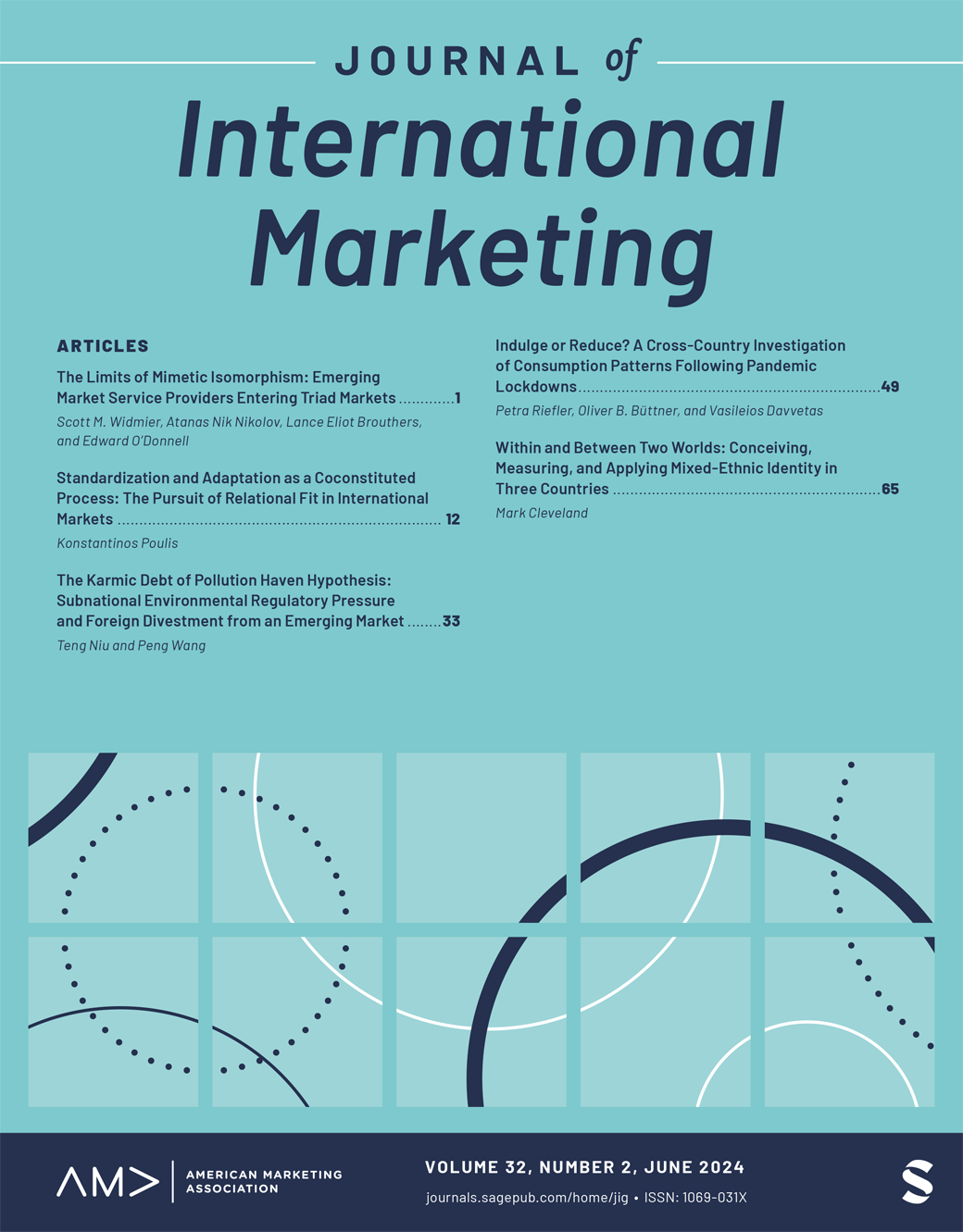快报:国内区位对B2B企业的出口强度有多大影响?方差分解研究
IF 4.9
2区 管理学
Q1 BUSINESS
引用次数: 1
摘要
企业对企业(B2B)公司利用其国内位置的优势出口商品和服务。然而,很少有实证研究考察了国内区位效应在多大程度上解释了B2B企业出口强度的变化,尽管它们具有潜在的关键作用。在这项研究中,作者用方差分解分析来探讨这个问题,这种方法允许他们定量地检查国内位置和其他影响对B2B公司出口强度的相对贡献。他们的分析使用了15年(2004-2018)期间7465家欧洲B2B公司的大型纵向样本。将国内区位效应分为母国效应和次国家区域效应(一个国家内的地理空间),他们发现每一种效应都解释了出口强度变化的很大一部分。值得注意的是,结果表明,与大型B2B企业相比,中小企业的检验效果更为关键。国内区位因素对B2B制造业的影响也大于服务业。研究结果增强了学术界和管理层对国内区位效应在解释企业出口国际化中的应用和预测能力的理解。本文章由计算机程序翻译,如有差异,请以英文原文为准。
EXPRESS: How much does domestic location matter for B2B firms’ export intensity? A variance decomposition study
Business-to-business (B2B) firms leverage the advantages of their domestic location to export goods and services. However, little empirical research has examined the extent to which domestic location effects explain variation in B2B firms’ export intensity, despite their potentially critical role. In this study, the authors explore this question with a variance decomposition analysis—an approach that allows them to quantitatively examine the relative contribution of domestic location and other effects on B2B firms’ export intensity. Their analysis uses a large longitudinal sample of 7,465 European B2B firms over 15 years (2004–2018). Splitting domestic location effects into the home country and subnational region (a geographic space within a country) effects, they find that each explains a substantial portion of the variation in export intensity. Notably, the results show that the examined effects are more critical for small and medium-sized enterprises than for larger B2B firms. Domestic location factors also matter more for B2B manufacturing than service firms. The findings enhance scholarly and managerial understanding of the application and predictive power of domestic location effects in explaining firm internationalization through exports.
求助全文
通过发布文献求助,成功后即可免费获取论文全文。
去求助
来源期刊

Journal of International Marketing
BUSINESS-
CiteScore
8.70
自引率
17.20%
发文量
28
期刊介绍:
As the globalization of markets continues at a rapid pace, business practitioners and educators alike face the challenge of staying current with the developments. Marketing managers require a source of new information and insights on international business events. International marketing educators require a forum for disseminating their thoughts and research findings. Journal of International Marketing(JIM) is an international, peer-reviewed journal dedicated to advancing international marketing practice, research, and theory. Contributions addressing any aspect of international marketing management are published each quarter.
 求助内容:
求助内容: 应助结果提醒方式:
应助结果提醒方式:


